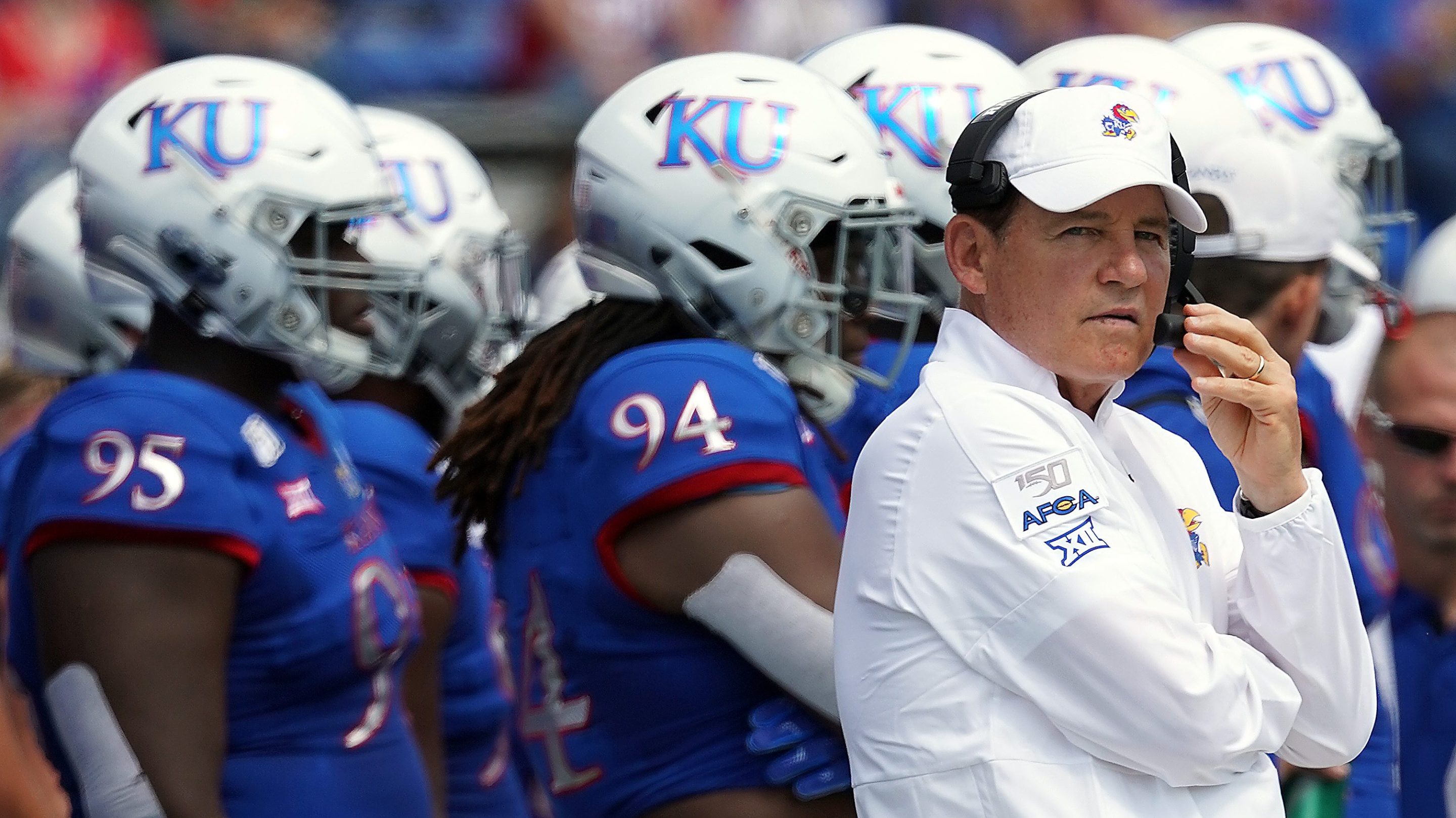The Problem Was That Les Miles Stopped Winning
6:04 PM EST on March 9, 2021

Even in 2019, coaching football at a basketball school and nearly 800 miles away from Baton Rogue, Les Miles still wore his 2007 LSU National Championship ring. You can't miss it in the photos because it's so damn big—because that's the whole point of one of those rings. You want everyone to know. It's the headline. It does all the work for you. You are a very important person, the kind of person who has a ring that size.
In Miles's case, it also bought him a certain security. Everyone knows now, thanks to a lawsuit brought by USA Today, that Miles had a history of inappropriate and disturbing behavior with female students at LSU. A former athletics employee said he kissed her twice. Another female student reported her uncomfortable interactions with Miles to administrators. After LSU's national championship loss in 2012, Miles's reaction was to decide that the problem was female student workers weren't hot and blonde enough. Miles demanded that the athletics department hire young women with "a certain look," according to a report released last week by the law firm Husch Blackwell looking into how LSU handled reports of gender violence and discrimination. The same report said at least three people said they heard Miles sorting women in the operations staff into a designation of his own making, "a.m. and p.m. girls," and he once referred to student workers as "looking like a 'bad bowling team.'"
One witness told Husch Blackwell: "It makes me want to vomit, because it was kind of that every year it got a little worse and a little worse and after a while it almost became normal that we can’t hire anybody that’s fat and ugly.”
What came of all this in 2013 was an investigative report by the law firm Taylor Porter, eight pages once you subtract the mostly superfluous attachments, that recommended that Miles not have one-on-one contact with student employees, could not use his private cell phone for talking with employees, and instructed that Miles not be involved in hiring student employees, as well as requiring him to attend counseling on "how to establish appropriate boundaries with students and student employees." It seems the only reason this report exists at all is because "past attempts to sensitize" Miles have failed, the document reads. And then LSU went about the busy work of burying all this this so that nobody would know.
That's the real running theme through the Taylor Porter report, finally released Friday: Nobody can know. The report mentions, several times, that the student who came forward and said Miles kissed her wanted to remain confidential, a perfectly reasonable request given Miles's power and stature. But at what point is an institution protecting a person's privacy and at what point is it protecting itself? At the end of the Taylor Porter document comes a lengthy paragraph in which the lawyers flat-out say that Miles's lawyers "are very reluctant to have any written directive or other document generated regarding the resolution of the complaint." So the report sets out a plan for helping LSU avoiding any public record requests, by suggesting that the record could be kept out of the public eye if it was not physically held by the university and, instead, by lawyers who could claim attorney-client privilege (XXX refers to Miles):
Though in the face of a public records request we believe LSU could successfully position that such a document is protected from production by the privacy rights of the individuals involved, there is no guarantee that such a document might not have to be produced either as a result of a public records request or other legal proceeding. In order to attempt to minimize the possibility of this, we suggest that the written directive to XXX (as described above) be sent by our law firm to the law firm representing XXX. Each law firm would maintain copies of the document in its files. The directive to XXX's lawyer will reference the Department wide and Football Operations specific policies and LSU's expectation that XX comply with them. it will also reference the counseling commitment.
The idea of a public institution doing whatever it takes to keep records away from the public is hardly new. The Associated Press had to sue to get certain records released in the criminal case brought against former Penn State administrators. Big Ten leadership talked about moving their conversations outside their public email accounts while discussing bringing back football during the COVID-19 pandemic. Any person who submits public records requests at some point sees a pile of emails that just say, ominously, "call me." Even Baylor, a private college, purposely did not generate records during its sexual-assault scandal. But rarely does the public get to see such explicit, detailed plans about how to avoid public record laws, with lawyers volunteering their offices as safe havens aways from the prying eyes of taxpayers.
For all the depressing absurdity, I cannot escape the feeling that this would have worked—of course it would have—if Miles hadn't stopped winning. If he hadn't stopped winning at LSU. If he hadn't landed at a non-perennial contender like Kansas. If he weren't 3-18. For as momentarily funny it might be to think of Miles getting canned by Kansas on Monday, on International Women's Day and one workday after the release of the Taylor Porter report became public, the only shocking thing is that Kansas waited until Monday. Miles isn't as powerful as he used to be. Like Bill Cosby and Harvey Weinstein, he's been felled while already far from his glory. But when he was winning, the entire college football protection machinery fell in line to do its job. It did it so well it's easy enough to imagine how many other programs right now are following the exact same playbook.
If you liked this blog, please share it! Your referrals help Defector reach new readers, and those new readers always get a few free blogs before encountering our paywall.
Investigations Editor. You can reach her at diana@defector.com or, if you prefer protonmail, dfmoskovitz@protonmail.com. If security is a concern, download the Signal app and send her a text at 929-251-8187.
Stay in touch
Sign up for our free newsletter




